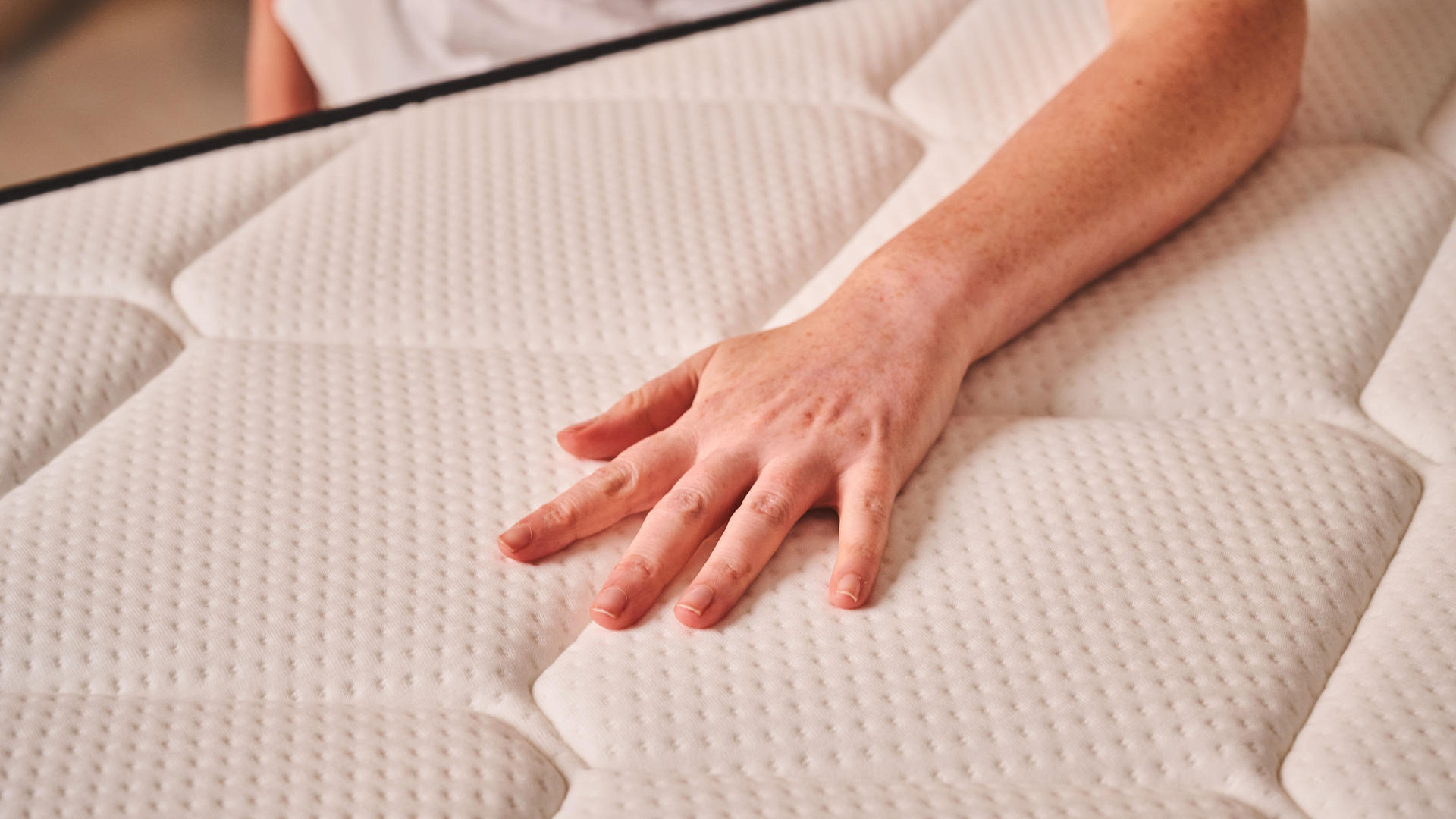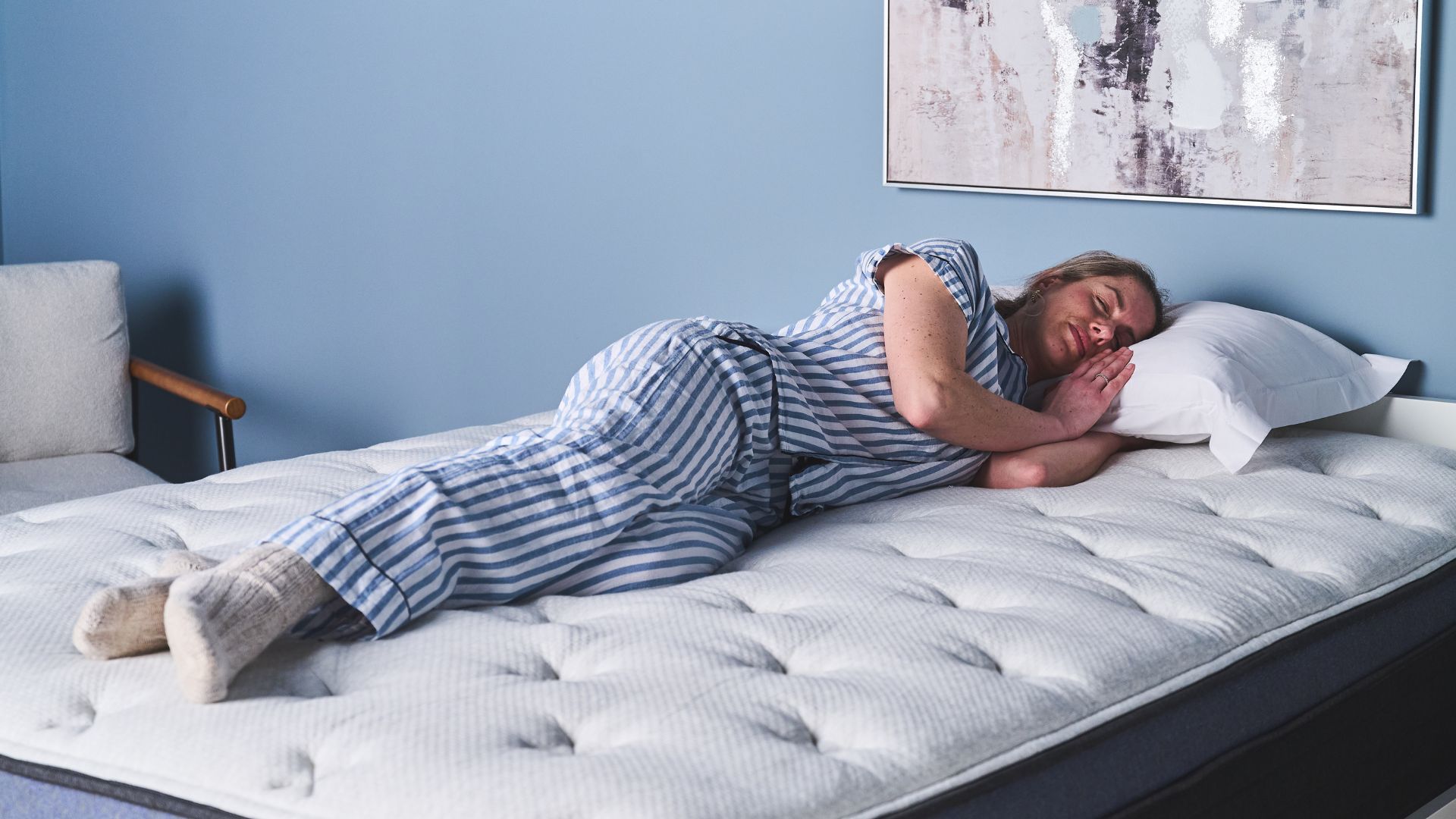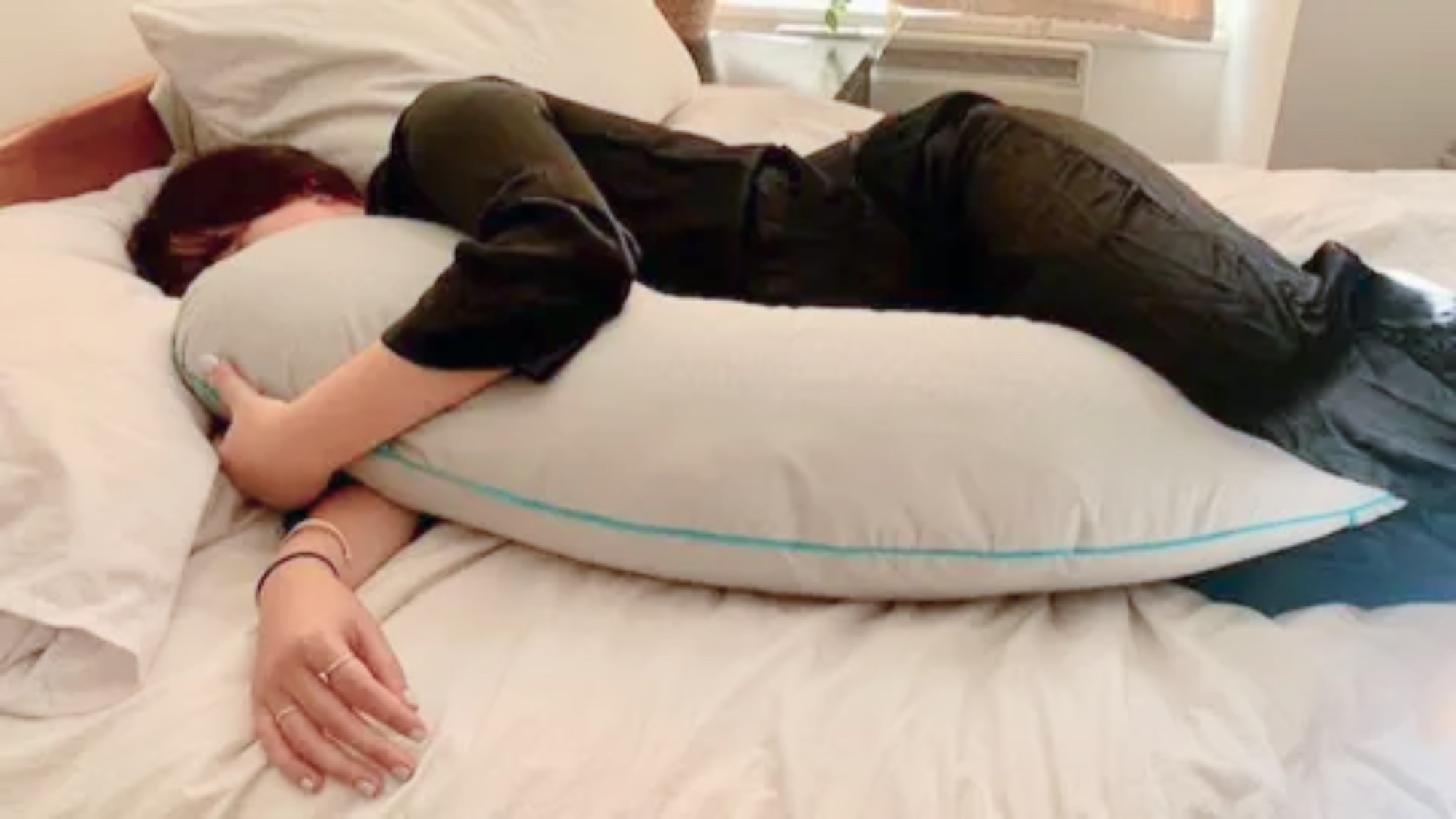'Why do my shoulders hurt when I sleep?' How your mattress could be to blame and how to fix that
Here's why you're waking with shoulder pain, plus what you can do to stop it

Sleeping on your side is considered one of the healthiest sleeping positions, helping to keep the spine aligned and alleviating pressure points. However, shoulder pain is a common complaint amongst those who sleep on their sides. This is because when you sleep on your side, your shoulder ends up bearing a lot of the weight of your torso.
Choosing one of the top rated beds of 2025 to support your sleeping position can make a huge difference, but the wrong mattress isn’t the only culprit when it comes to shoulder pain. In this guide, we’ll look at some of the most common causes of shoulder pain and explain how to fix it. Let’s get started…
Shoulder pain when sleeping? Here’s 5 reasons why
There are a number of reasons why you might be suffering from shoulder pain at night. These are some of the most common.
1. Your mattress is too firm

The best mattresses for side sleepers offer plenty of cushioning comfort around the pressure points of the shoulders, hips and knees, along with enough core support to keep the spine aligned. If your mattress is too firm, it’s likely that it will be lacking in contouring at these crucial pressure points, which will lead to aches and shoulder pain.
Medium feel mattresses are typically best for side sleepers but do remember that firmness is subjective, and body weight should also be considered. Heavier bodies will need more support to stop them from sinking too far into the mattress.
2. There's a buildup of pressure
If you only sleep in one position throughout the night, it’s easier for pressure to build up around the shoulders. This doesn’t apply if you’re a back or combination sleeper though. Back sleepers’ shoulders will be supported as they’ll be cushioned by the mattress underneath them.
And combination sleepers shift position during the night, which helps to stop pressure points building. But if you’re sleeping in one position from dusk till dawn, it’s easy for pressure to build up around the shoulders as, when you’re sleeping on your side, they’ll be taking a large amount of weight on them.
3. You're sleeping in the wrong position

Although shoulder pain is most common amongst side sleepers, it can also be experienced by stomach sleepers. Stomach sleeping is widely regarded as the worst sleep position as it can cause your spine to dip out of alignment. But on top of this, stomach sleeping places your shoulders under increased pressure as there’s nothing to support them. After eight hours of sleeping with no support, it’s no surprise that this poor posture can cause pain.
Sign up to get the BEST of Tom's Guide direct to your inbox.
Get instant access to breaking news, the hottest reviews, great deals and helpful tips.
4. Referred pain from your neck
If you’ve ever experienced back pain, for example, you’ll know how easily it can spread up the back and into the shoulders. Likewise, neck pain can also transfer itself to your shoulders and cause referred pain.
Referred pain is simply pain felt in a location other than the original site of your pain. When pressure is put on the shoulders due to your sleeping position, it’s easy for existing pain to travel to that area and cause issues.
5. Underlying shoulder ailment
An underlying shoulder ailment will obviously also cause you shoulder pain. If you think you have any of the following, see your doctor for more advice.
- Rotator cuff injury – The rotator cuff is a collection of tendons surrounding your shoulder joint. These can become inflamed and irritated or even partially torn.
- Osteoarthritis of the shoulder – Osteoarthritis occurs when the cartilage between your bones starts to break down.
- Impingement – This happens when the soft tissues around your rotator cuff catch or rub on nearby tissue or bone as you move your arm.
- Shoulder bursitis – Bursae are small fluid-filled sacs that help cushion the tissues around your joints. If one of these becomes inflamed, you could develop bursitis.
How to reduce shoulder pain when sleeping
Now you know what’s causing your shoulder pain, you can fix it. Here's where to start...
Invest in the right mattress for your sleep needs
The right mattress will offer plenty of pressure relief for your chosen sleep position. We’ve already looked at the ideal choice for side sleepers but, as previously mentioned, stomach sleepers can also be at risk from shoulder pain.

The best mattresses for stomach sleepers will help to keep the hips lifted and spine aligned, which should help to take pressure off the shoulders. If you don’t have the budget for a new mattress, one of the best mattress toppers could provide the sink-in softness and support your shoulders need.
Don’t overlook your pillow
Choosing the right pillow for your sleeping style can make a big difference to aches and pains in general. Different sleeping styles require a different loft of pillow – for example, side sleepers need a high loft while stomach sleepers require a low loft.
The best pillows will not only keep your spine in alignment but will also help with healthy neck alignment. Both of these will help to prevent any pain travelling to your shoulders due to the shared nerves in your body.
Add a body pillow for support
Although side sleeping is regarded as the optimum sleep position, it can be relatively easy to roll your spine out of alignment if you sleep with one leg further out than the other or start to roll too far forwards. A simple answer to this is to invest in a body pillow.
These full-length pillows are designed to stop you rolling forward, as well as padding the space between your knees to reduce pressure on your hips and lower back. A body pillow will also reduce the pressure on your weightbearing shoulder as you’ll be unable to roll your weight onto it.

Switch up your sleep position
If you’ve tried all these tips and you’re still experiencing shoulder pain, you might want to consider trying to sleep on your back instead. Back sleeping is great for spinal alignment, allowing your body to relax by evenly distributing your weight. Your shoulders will also be well supported, which will help to alleviate pain. The aforementioned body pillow could also be a good investment here, as you can use it as a barrier to help prevent you turning onto your side in your sleep.
Other ways to relieve shoulder pain
As well as following all these tips, there are other steps you can take to help relieve shoulder pain. We’d advise practising good sleep hygiene and helping your body to wind down before bedtime by reading a book or taking a hot bath or shower.
You could also try some meditation. Follow a gentle exercise programme in the day to help keep your shoulders mobile and active, which will help prevent pain from building up. Finally, some people might find relief by using a ‘pillow wall’ to rest your arm on and keep it slightly elevated. This can help take some of the pressure off your shoulder.

Jo Plumridge is an experienced mattress reviewer with several years' experience covering all things mattresses and sleep, and who tests memory foam, hybrid and organic mattresses. What Jo doesn't know about a boxed mattress isn't worth knowing, so naturally we tasked her with producing a series of features for Tom's Guide looking at all aspects of mattresses, from how to pick between latex and memory foam (it's a tricky one), to the seven mistakes people make when buying a mattress for the first time. When testing the DreamCloud Luxury Hybrid for Tom's Guide, Jo said: "I loved the back support and pressure relief it offered. Plus, it looks far more expensive than it is." When she isn’t writing about sleep, Jo also writes extensively on interior design, home products and photography.
You must confirm your public display name before commenting
Please logout and then login again, you will then be prompted to enter your display name.
